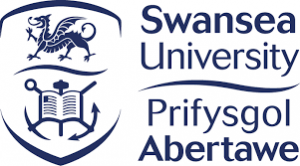
The inside of a fusion reactor is one of the most challenging environments known about, with temperatures ranging from the hottest in the solar system (100,000,000 °C at the centre of the plasma) to the coolest (-269 °C in the cryopump) all within a few metres, coupled with electro-magnetic loads and irradiation damage. This has already been achieved for short periods of time at JET, the world’s largest fusion device located at Culham Centre for Fusion Energy (UKAEA), UK. But one of the greatest engineering challenges of the 21st century will be to construct a machine that can operate under these extremes routinely and produce commercially viable energy.
About Swansea University
Swansea University has been at the cutting edge of research and innovation since 1920. We have a long history of working with business and industry but today our world-class research has a much wider impact across the health, wealth, culture, and well-being of our society. We have achieved an extraordinary level of success in recent years and our research activity exceeds that of many larger universities yet this has not compromised the friendly and relaxed atmosphere that has always characterised the �Swansea experience�. In our Centenary year, we look forward to continuing to work ... read more

Fully Funded Swansea and UKAEA PhD Scholarship
| Application Deadline | 05 Aug 2022 |
| School to study | Swansea University |
| Type | PhD |
| Sponsor | Swansea University |
| Gender | Men and Women |
Aim and Benefits of Fully Funded Swansea and UKAEA PhD Scholarship
This scholarship covers the full cost of UK tuition fees and an annual stipend of £15,609.
Requirements for Fully Funded Swansea and UKAEA PhD Scholarship Qualification
Candidates should hold a first or upper second class honours degree (or its equivalent) in engineering, computer science, mathematics, or physics, or a master’s degree in a subject area related to the project. See - Country-specific Information for European Applicants 2019 and Country-specific Information for International Applicants 2019.
A strong background in numerical methods or machine learning is required. Knowledge/experience of programming in compiled languages (e.g. C, C++, or Fortran) and interpreted languages (e.g. Python) is essential and CUDA is desirable as well has having experience with engineering analysis (e.g. FEA).
English Language requirements: If applicable – IELTS 6.5 overall (with at least 5.5 in each individual component) or Swansea recognised equivalent. Details on the Swansea University English Language entry policy can be found here.
Documents Required for Application
As part of your online application, you MUST upload the following documents (please do not send these via email):
- CV
- Degree certificates and transcripts (if you are currently studying for a degree, screenshots of your grades to date are sufficient)
- A cover letter including a ‘Supplementary Personal Statement’ to explain why the position particularly matches your skills and experience and how you choose to develop the project.
- Two references (academic or previous employer) on headed paper or using the Swansea University reference form. Please note that we are not able to accept references received citing private email accounts, e.g. Hotmail. Referees should cite their employment email address for verification of reference.
- Evidence of meeting English Language requirement (if applicable).
- Copy of UK resident visa (if applicable)
Application Deadline
August 5, 2022How to Apply
To apply, please complete your application online with the following information:
- Course choice – please select Mechanical Engineering / Ph.D. / Full-time / 3 Year / October
In the event you have already applied for the above programme previously, the application system may issue a warning notice and prevent application, in this event, please email [email protected] where staff will be happy to assist you in submitting your application.
For more details, visit Swansea University website.



